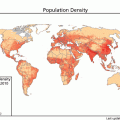Classification: ICD-9 002.0; ICD-10 A01
Syndromes and synonyms: Enteric fever, typhus abdominalis.
Agent: Salmonella enterica enterica serovar Typhi (S. Typhi), a Gram-negative bacillus. S. Typhi belongs to Salmonella serogroup D and possesses somatic antigen O9, a single flagellar antigen Hd, and virulence antigen Vi. S. Paratyphi A can cause similar disease.
Reservoir: Mainly humans; rarely domestic animals. Humans can be short-term carriers after an infection (10%) or become chronic carriers in the biliary tract (1–5%), shedding viable bacteria in the stool. Chronic carriers are mainly adults with pre-existing biliary tract pathology. Urinary carriage may occur in areas where Schistosoma haematobium is endemic.
Vector: Flies can contaminate foods.
Transmission: Via fecal contaminated water, drinks or food from infected individuals or carriers; transmission may also occur in men who have sex with men.
Cycle: Infected individuals shed bacteria into environment, contaminating water and food products that are subsequently ingested by other humans.
Incubation period
Stay updated, free articles. Join our Telegram channel

Full access? Get Clinical Tree




